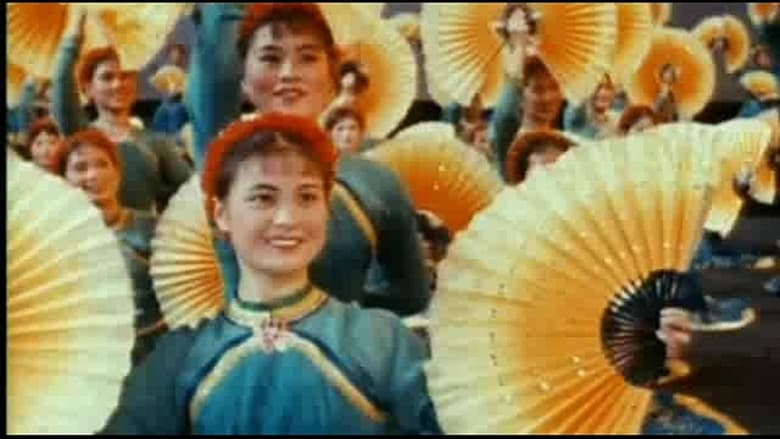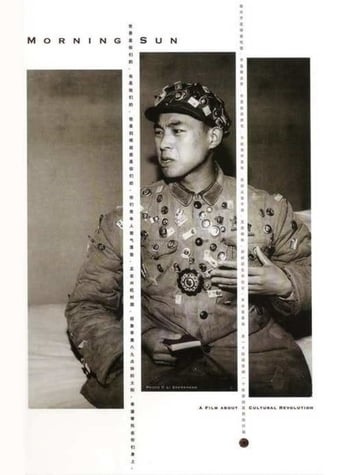
The film Morning Sun attempts in the space of a two-hour documentary film to create an inner history of the Great Proletarian Cultural Revolution (c.1964-1976). It provides a multi-perspective view of a tumultuous period as seen through the eyes—and reflected in the hearts and minds—of members of the high-school generation that was born around the time of the founding of the People’s Republic of China in 1949, and that came of age in the 1960s. Others join them in creating in the film’s conversation about the period and the psycho-emotional topography of high-Maoist China, as well as the enduring legacy of that period.
Similar titles
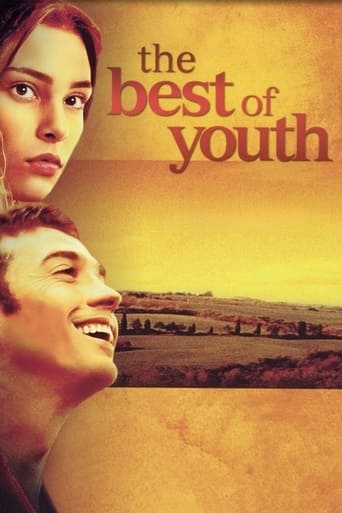
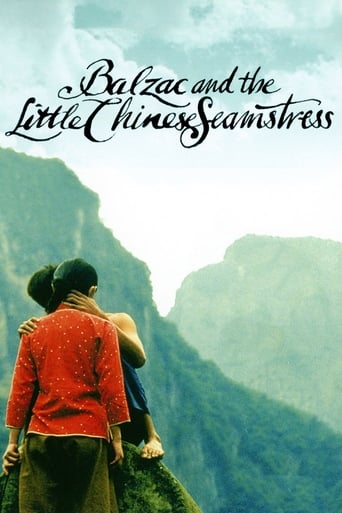
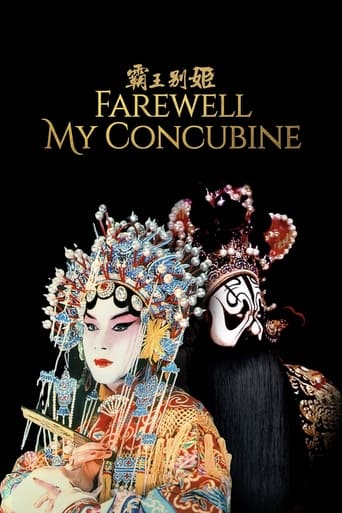
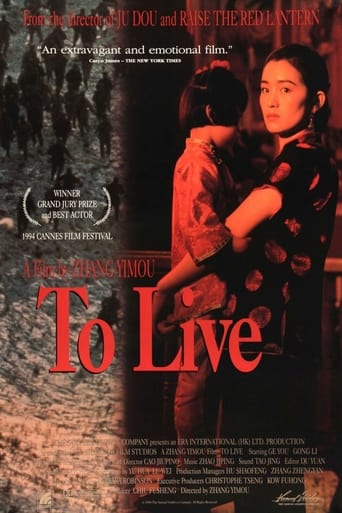
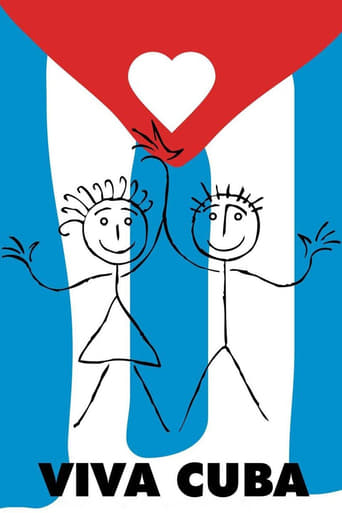
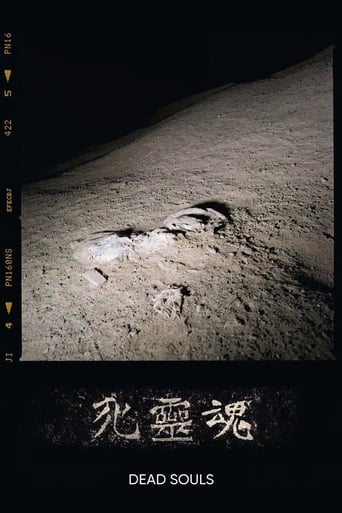

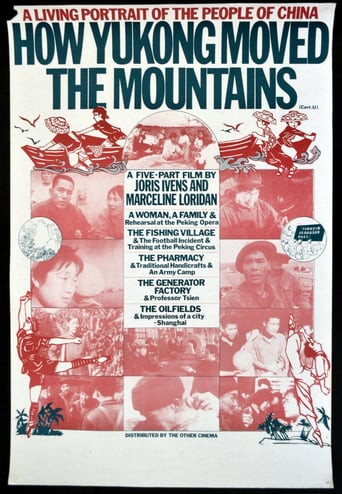
Reviews
The film makes a home in your brain and the only cure is to see it again.
It’s fine. It's literally the definition of a fine movie. You’ve seen it before, you know every beat and outcome before the characters even do. Only question is how much escapism you’re looking for.
While it doesn't offer any answers, it both thrills and makes you think.
The movie turns out to be a little better than the average. Starting from a romantic formula often seen in the cinema, it ends in the most predictable (and somewhat bland) way.
Fascinating, tragic, densely packed documentary on China's horrific Cultural Revolution in the 1960s. It's impressive that the filmmakers can make such a twisted, complex, ever changing moment in history as clear and understandable as they do in just two hours. With strong use of interviews of survivors and perpetrators alike, along with amazing archival footage, we get real insight into the gap between the good intentions starting out and the disastrous results, as well as how easy mob mentality can grip an entire country. We also see what a political master Mao was, allowing and even encouraging near anarchy to help keep his hold on absolute power, while somehow always maintaining the loyalty of the people. A bit dry at times, and repetitive in a few moments, but in general this is as intelligent and insightful a look at recent history as one could hope for.
The creation of the People's Republic of China was supposed to be the birth of a new nation but the failures of the new systems left party leader Mao politically exposed and threatened to bring down what had been built up. Mao appealed directly to the people to stand firm against criticism of "their" country and, by doing so, made the battle one for unity rather than a critique of the mistakes that had been made by the Party. Those that criticised Mao were seen as class traitors and enemies of the state and the force behind this Cultural Revolution almost totally removed his opposition. With such events being unknown to the modern West, this documentary attempts to describe the events and the lives of those involved.In the main it does this very well, using interviews and archive footage to really give a personal sense of place and genuine insight as to the times and the events. Not knowing a great deal about the world's next superpower, I found this informative and interesting and it effortlessly held my attention throughout, even if I did occasionally feel that it could have been punchier and more to the point. The time and place is hard to understand and certainly as a Western I did appreciate the fact that the film was mostly pretty clear; I would have liked it to link more to modern day China but that is not a failing of the film just my expectations not being in line with the actual aims.The talking heads are mostly very interesting although I did often find it difficult to keep up with who was who and what their various roles had been. The use of rather softly spoken Americans to provide translation did grate a little bit and I much preferred to just be left alone to read the subtitles and hear from the people in their own voices. Likewise the English woman doing the narration did come over a bit superior and she gave the documentary a rather detached and distant air that the majority of it did not warrant.Overall this is an interesting documentary but, it must be said, that it will have limited appeal a fact that can be seen by the low number of votes and comments for it on this very site. It uses the people and footage well to help explain what happened in the years covered and it mostly does it without being biased one way or the other to too much of an extreme.
As Orwell observed, most revolutions involve merely an exchange of elites, while the bulk of a society's power structures remain in place. On one hand, this thought is depressing, as it implies that a true redistribution of power and wealth is essentially impossible. But revolutionaries from Lenin onwards have discovered that a measure of realpolitik is necessary if a state is not to completely collapse under the impact of dramatic change. China's cultural revolution stands somewhat in opposition to this orthodoxy, a revolution that effectively sought to destroy all institutions in which power was embedded, and which reduced China to a state of violent semi-anarchy. The key to this distinctiveness was the way that this revolution was directed against the victors of an earlier, more conventional, upheaval, but under the leadership of the same man.China in the mid-1960s had been under communist rule since 1945; the party leader, Mao, was the object of cult adoration, but after misjudgements Mao as an individual had been somewhat marginalised from the political mainstream. Mao responded by using his unrivalled status to appeal directly to the public and attack his fellow communists, accusing his opponents of betraying the cause. In effect, Mao distanced himself from the failures of his own, first revolution; and called on the people to revolt against a system that no-one was ultimately more responsible for than he himself. The cultural revolution empowered a generation of young people, brought up to idolise their Chairman, to assault authority in whatever guise it appeared (save, of course, for the unquestionable authority of Mao himself). The forces thus unleashed granted Mao a total political victory over his enemies, but in a sense, Mao could only surf the wave of what he had released, a kind of madness that gathered momentum of its own.'A Morning Sun' is a strong documentary attempting to explain these unlikely times to a modern, western audience. It contains much excellent footage, and interviews with many who lived through these turbulent times, including now-repentant Red Guards and the class enemies they beat up. Although no-one actively defends the Chairman, the film still provides an interesting insight into the psychology that allowed the revolution to unfold. My only criticism is that while the Chinese interviewees are dubbed into American voices, the faintly querulous and superior English narration strikes a slightly discordant note.Today, China is capitalist is all but name; yet Mao is still revered. A visit reveals a fascinating society that feels in many ways different from the west. 'A Morning Sun' is well worth watching to help us understand a relatively recent historical episode that has few direct parallels elsewhere in the world.
Fantastic archival footage and captivating interviews weave together a concise examination of China's so-called Cultural Revolution. While largely an overview, the film does find moments of intense specificity in its many candid interviews. This is a well constructed documentary, both educationally fascinating and emotionally charged. If only they could show it in China...
Top Streaming Movies











